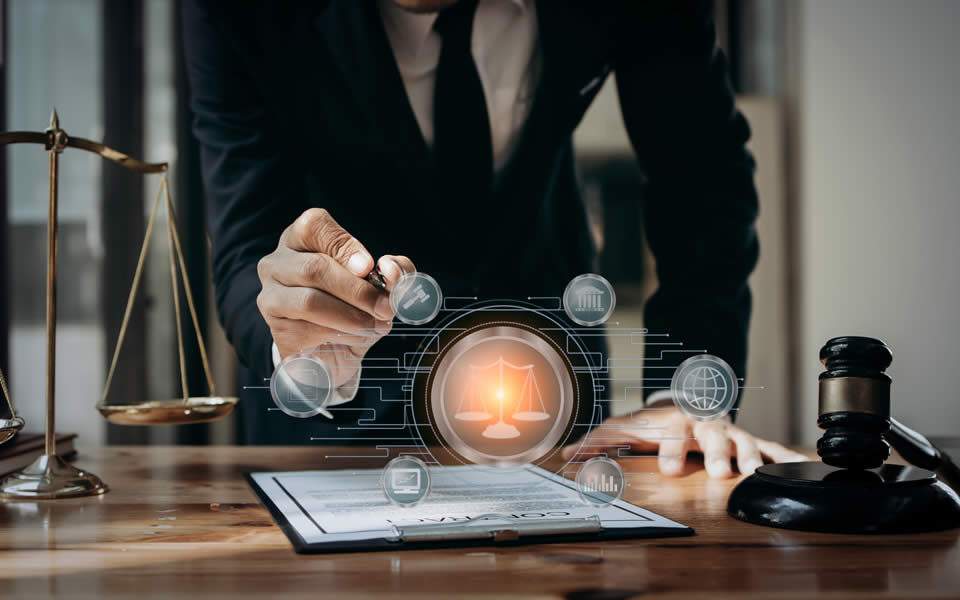Challenges in Discovery
By David H. Glusman, CPA/CFF, FABFA, CFS, Cr. FA, Partner, Advisory Services & Jesse LaGrossa, Manager, Advisory Services
The goal of discovery is to allow the parties in commercial litigation to gather information that increases the likelihood they will prevail in the proceedings. While this goal is very straightforward, the challenge attorneys face is clairvoyance. Ideally, to craft an effective discovery request, attorneys must have a complete understanding of and insight into the parties and the events and activities of the matter.
Discovery Challenges
There are several inherent challenges in achieving the insight and understanding that is necessary for a well-crafted discovery request. A client’s knowledge of key events and the information available in documents, data files, and from involved individuals is very often limited. Additionally, a client’s perspective is often clouded by bias and emotion, which impacts their recollections or understanding of data and events. Even the best-intentioned client will fail to realize the relevance of certain documents, for example. Most litigants don’t understand the depth and breadth of the litigation process.
In discovery, people often believe requests must focus on relevant documentation or evidence. Generally, anything that is reasonably likely to lead to relevant evidence can be sought through discovery. This can serve as the basis for very broad discovery requests. However, courts and judges are extremely busy with expanding litigation dockets. Judges are increasingly implementing standards and requirements for filings, including denying irrelevant or overreaching requests and rejecting boilerplate filings. Recently, a New Jersey federal judge slapped a $5,000 sanction on a litigation attorney for a lengthy boilerplate filing.
Best Evidence
Determining what data and information provide conclusive evidence that either supports or refutes a claim is key. Instead of obtaining relevant evidence, the approach should be to obtain the best evidence.
“Best evidence” includes identifying the best data, the best sources of that data, and the best format for the data to be provided. For example, litigation that results in economic damages may involve discovery of accounting records and reports. However, discovery of the best evidence would define the specific types of accounting transactions with details about the specific data fields for those accounting transactions. Best evidence would also include depositions from key individuals who have specific knowledge of the accounting records.
Generally, accounting records maintained in the ordinary course of business constitute better evidence than financial records prepared in contemplation of litigation. For example, a client may have two (or more) versions of financial projections (including projected revenues, costs, and profits) that cover the same time period. If one version was prepared contemporaneously with a company’s annual budgeting process (in the ordinary course of business), it may be more persuasive or credible than another iteration prepared solely for the purpose of the litigation. In such a scenario, an expert can assist with crafting specific discovery requests to help counsel and their client understand the different inputs and assumptions driving the projections. This may also include helping counsel develop deposition questions for both an opposing expert, who may have relied on a version of the projections, and individuals within the company who were originally tasked with developing the projections.
Likewise, an entity or individual may have prepared financial statements or projections for various purposes at the same time or over a period of time. These may have been for financing purposes or to obtain bank loans or mortgages. Obtaining all types of relevant financial information at the beginning of the discovery process will allow counsel and forensic accountants to fully evaluate the implications based on the information and similarity or differences in what has been presented.
Forensics and litigation experts play an important role in obtaining the best evidence, especially financial records. Litigation often encompasses highly complex data, industry-specific nuances, and other technical issues.
Experts with litigation support experience will help to ensure that:
- Each requested item is closely tied to the points of law in the complaint.
- Each item provides conclusive evidence.
- Each request is specific enough to assure the response provides the information requested, and that information is complete and in the best format.
Forensics experts offer additional advantages including, but not limited to, the following:
- An understanding of the data, records, and documentation that are available, or should exist, including those generally maintained in a commercial enterprise’s ordinary course of business.
- The combination of industry-specific knowledge and litigation support experience, which can improve understanding of what happened, what should have happened, and the nature and extent of damages.
- An understanding of the accounting or other economic principles that would likely drive a damage calculation.
- An understanding of the possible resolution and favorable outcomes.
- The ability to help attorneys anticipate the opposition’s response to discovery requests and the underlying strategy that is implicit in a discovery request.
- Insight into the parties or individuals involved and their role and knowledge, along with the scope of involvement and sequencing history of events.
CONCLUSION
Discovery is one of the most crucial litigations steps. The downside of discovery is that if you miss it in your first request, you may not get a second “bite of the apple.”
Oversight and omission in discovery may result in inefficiency, and it may even determine whether there is a successful outcome. Effective and judicial use of a forensics expert may make the difference.





















